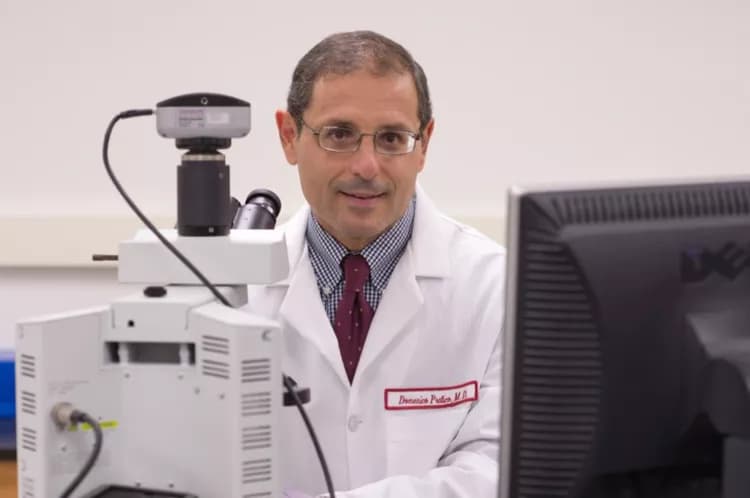
Altered Circadian Rhythm Worsens Parkinson's Disease, Researchers Show
Chronic lack of sleep and irregular sleep-wake cycles may be risk factors of Parkinson's disease, new work by researchers at the Lewis Katz School of Medicine at Temple University (LKSOM) suggests. In an animal model, the researchers show that disturbances in circadian rhythm that exist before Parkinson's onset dramatically worsen motor and learning deficits brought on by the disease.
The new work, led by Domenico Praticò, MD, Professor in the Departments of Pharmacology and Microbiology and the Center for Translational Medicine at LKSOM, is the first to demonstrate that an environmental factor -- chronic daily exposure to long periods of light with brief exposure to dark, which alters circadian rhythm -- can exacerbate Parkinson's symptoms and pathology. The findings appear online April 5 in the journalMolecular Psychiatry.
Patients with Parkinson's disease often suffer from recurrent sleep disorders and disturbances in circadian rhythm, the roughly 24-hour biological cycle of humans. But whether those disturbances impact the development and progression of Parkinson's has been unclear. "Many think that sleep disturbances are secondary to Parkinson's disease," Dr. Praticò explained. "But circadian rhythm disturbances are increasingly reported before the onset of Parkinson's, suggesting that they could be risk factors."
After age 60, the majority of Parkinson's disease cases are idiopathic, their cause unknown. According to Dr. Praticò, it is probable that in those cases, the disease arises as a result of interactions between genes and environmental risk factors. The latter include chronic stress, sleep disorders, and circadian disturbances, all of which affect the function of the central nervous system, potentially contributing to the pathology that characterizes Parkinson's disease.
Dr. Praticò and colleagues investigated the role of altered circadian rhythm using a well-established mouse model of Parkinson's disease, in which treatment with MPTP, a neurotoxin, reproduces aspects of the disease in mice. The researchers divided animals into two groups.
The first, the control group, was maintained on a regular circadian schedule, being exposed to 12 hours of light followed by 12 hours of dark each day. In the second group, circadian rhythm was altered through daily exposure to 20 hours of light followed by just four hours of dark. After 60 days, some animals from each group were treated with MPTP.
Assessments of movement and behavior showed that all mice treated with MPTP developed Parkinson's disease, but animals with altered circadian rhythm experienced significant learning impairments. They also exhibited severe motor deficits, with drastic reductions in motor coordination and motor learning skills -- far worse than the deficits observed in MPTP-treated mice with normal circadian rhythm.
To understand why circadian rhythm disturbance worsens Parkinson's disease, Dr. Praticò and his team examined the brains of affected mice. In a region known as the substantia nigra, they observed significant reductions in neurons that produce dopamine, the loss of which is a major molecular feature of Parkinson's disease. "The substantia nigra is the epicenter of Parkinson's disease," Dr. Praticò said. "Cells normally die in that region of the brain, but our study shows that circadian rhythm disturbance accelerates cell death there."
In addition, cells known as microglia, which normally protect neurons, were superactive in circadian-disrupted MPTP-treated mice. The overactivation of microglia can actually worsen neuroinflammation and potentially speed the progression of Parkinson's disease.
The next challenge is to see if the findings can be replicated in other animal models. "If those studies are successful, we'll then try to reestablish normal circadian rhythm in circadian-disrupted animals to explore the possibility of reversing brain inflammation and cell death," Dr. Praticò said.
The outcomes of those studies could have important implications for the prevention and treatment of Parkinson's disease in persons with chronic sleep disorders.
The above post is reprinted from materials provided by Temple University Health System. Note: Materials may be edited for content and length.
Disclaimer: DoveMed is not responsible for the adapted accuracy of news releases posted to DoveMed by contributing universities and institutions.
Primary Resource:
Lauretti, E., Di Meco, A., Merali, S., & Praticò, D. (2016). Circadian rhythm dysfunction: a novel environmental risk factor for Parkinson’s disease.Molecular Psychiatry.
Related Articles
Test Your Knowledge
Asked by users
Related Centers
Related Specialties
Related Physicians
Related Procedures
Related Resources
Join DoveHubs
and connect with fellow professionals

0 Comments
Please log in to post a comment.